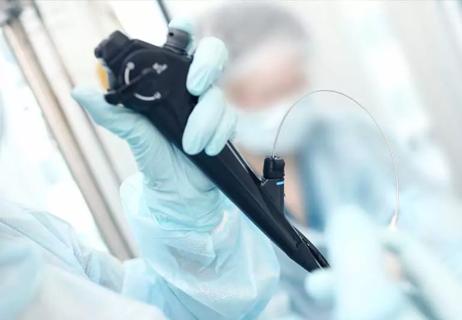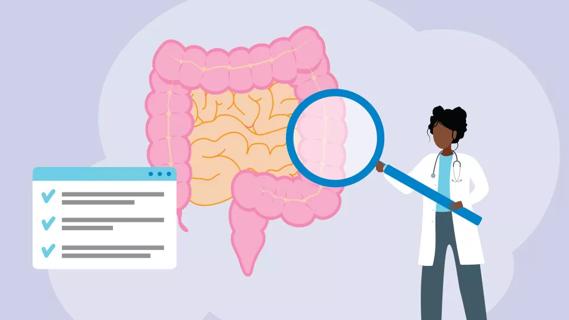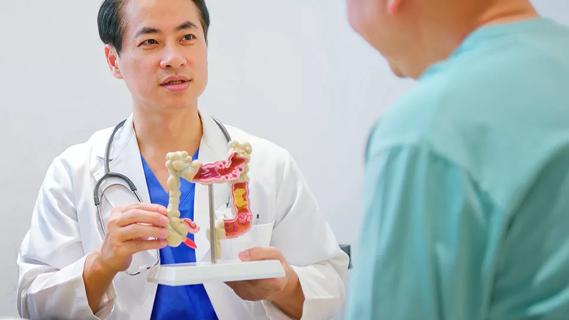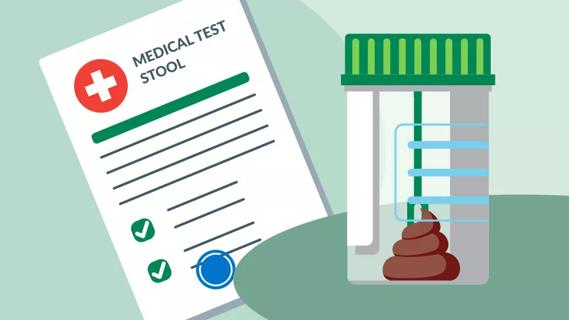A steady increase in cases in those younger than 50 started decades ago

If you’re younger than 50, here’s something you need to know: Decades of data on colon (colorectal) cancer show a deadly trend that affects you.
Advertisement
Cleveland Clinic is a non-profit academic medical center. Advertising on our site helps support our mission. We do not endorse non-Cleveland Clinic products or services. Policy
Cancer of the colon and rectum now ranks as the leading cause of cancer-related death among men aged 20 to 49 in the United States. For women, it’s now second behind only breast cancer, according to a 2024 report from the American Cancer Society.
That’s an alarming shift from the 1990s, when colorectal cancer ranked fourth for both groups.
The change reflects a steady rise in colorectal cases in the under-50 crowd. In recent years, diagnoses have increased 1% to 2% annually among that demographic, while dropping for the overall U.S. population.
A similar pattern has been seen around the world, too, with documented increases in Canada, Australia, New Zealand, and parts of Asia and Europe.
Let’s take a closer look at the trend with the help of colorectal surgeon David Liska, MD.
There’s no clear-cut answer to explain the growth in early-onset colon cancer. “More research is needed to better understand what is causing this rise in cases,” says Dr. Liska, director of the Center for Young-Onset Colorectal Cancer at Cleveland Clinic.
Many theories as to why focus on lifestyle factors and health conditions associated with colon cancer. The list includes:
Advertisement
But many early-onset cases don’t fit into any of the above categories. “We see plenty of younger people with colorectal cancer who are healthy and fit,” notes Dr. Liska. “So, it’s not just obesity or having a sedentary lifestyle. It’s a combination of factors.”
Some researchers — including a team at the Cleveland Clinic — are looking into whether certain gut bacteria may be contributing to the growth of tumors in the intestines.
People at increased risk for colorectal cancer who usually need to be screened for the disease earlier and more frequently include those with:
Colorectal cancer comes with warning signs. Unfortunately, they’re frequently attributed to a less serious condition (such as hemorrhoids) or brushed off by those who think they’re too young for colorectal cancer.
Traditionally, colon cancer risk was tied to age, with risk levels elevating after age 50.
“We often see younger patients with advanced cases of colorectal cancer who initially ignored their symptoms, which led to a delayed evaluation,” says Dr. Liska.
Early indicators of colorectal cancer could include:
Now, does anyone really like talking to their healthcare provider about their poop patterns? Nope. It’s awkward, to say the least. But the conversation is important to start.
“Don’t assume that a change means nothing,” advises Dr. Liska. “Talk to your doctor so they can do an assessment. Colorectal cancer can be extremely treatable and curable, but early diagnosis is key.”
People are increasingly getting colon cancer earlier in life brought changes to colorectal screening recommendations in 2021.
The U.S. Preventive Services Task Force lowered the age at which it recommends a screening, from 50 to 45. If you have elevated risk factors, such as a family history of colon cancer, your healthcare provider may recommend starting screenings even earlier.
The adjustment was made with one primary goal in mind: Saving lives through early detection. “Knowing there is an issue is the first step to addressing it,” says Dr. Liska.
Advertisement
A colonoscopy is considered the “gold standard” for colon cancer screening. The procedure allows healthcare providers to find and remove any colon polyps that are cancerous or could become cancerous.
At-home stool tests are a less invasive option that can be effective at detecting colon cancer. But the tests are limited when it comes to finding precancerous polyps before they become a problem.
The use of screening programs is cited as the main reason why the number of colorectal cancer cases and deaths has been decreasing among people older than age 50.
Video content: This video is available to watch online.
View video online (https://cdnapisec.kaltura.com/p/2207941/sp/220794100/playManifest/entryId/1_29i2mzz6/flavorId/1_5f3sgelj/format/url/protocol/https/a.mp4)
Learn how adjusting your diet may decrease the risk of developing colon cancer.
The fact you’ve read this far is a good first step in protecting yourself against colorectal cancer. Understanding the risk is essential for staying a step ahead of the disease.
With that in mind, Dr. Liska offered these four tips.
Advertisement
“It’s important to know what factors can increase the risk of developing colorectal cancer, what symptoms to be vigilant about and when to get screened,” stresses Dr. Liska. “There’s a lot you can do to protect yourself.”
Advertisement
Learn more about our editorial process.
Advertisement

Focus on exercise, eating healthy and getting regular screenings to help lower your risk

Chronic inflammation from flare-ups can damage the lining of your intestinal wall, making your colon more vulnerable to cancer

Colonoscopies and sigmoidoscopies are types of endoscopies, procedures that look at the health of your large intestine

If you’re at average risk, it’s recommended that you get your first colonoscopy at age 45

It’s a slow-moving process that offers an opportunity for early detection and treatment

At-home screening options can be good detection tools, but a colonoscopy remains the gold standard

Knowing your family history and getting a genetic test can help detect colorectal cancer earlier

Get lots of fiber, cut back on red meat and limit your alcohol intake

Wearing a scarf, adjusting your outdoor activities and following your asthma treatment plan can help limit breathing problems

Your diet in the weeks, days and hours ahead of your race can power you to the finish line

When someone guilt trips you, they’re using emotionally manipulative behavior to try to get you to act a certain way